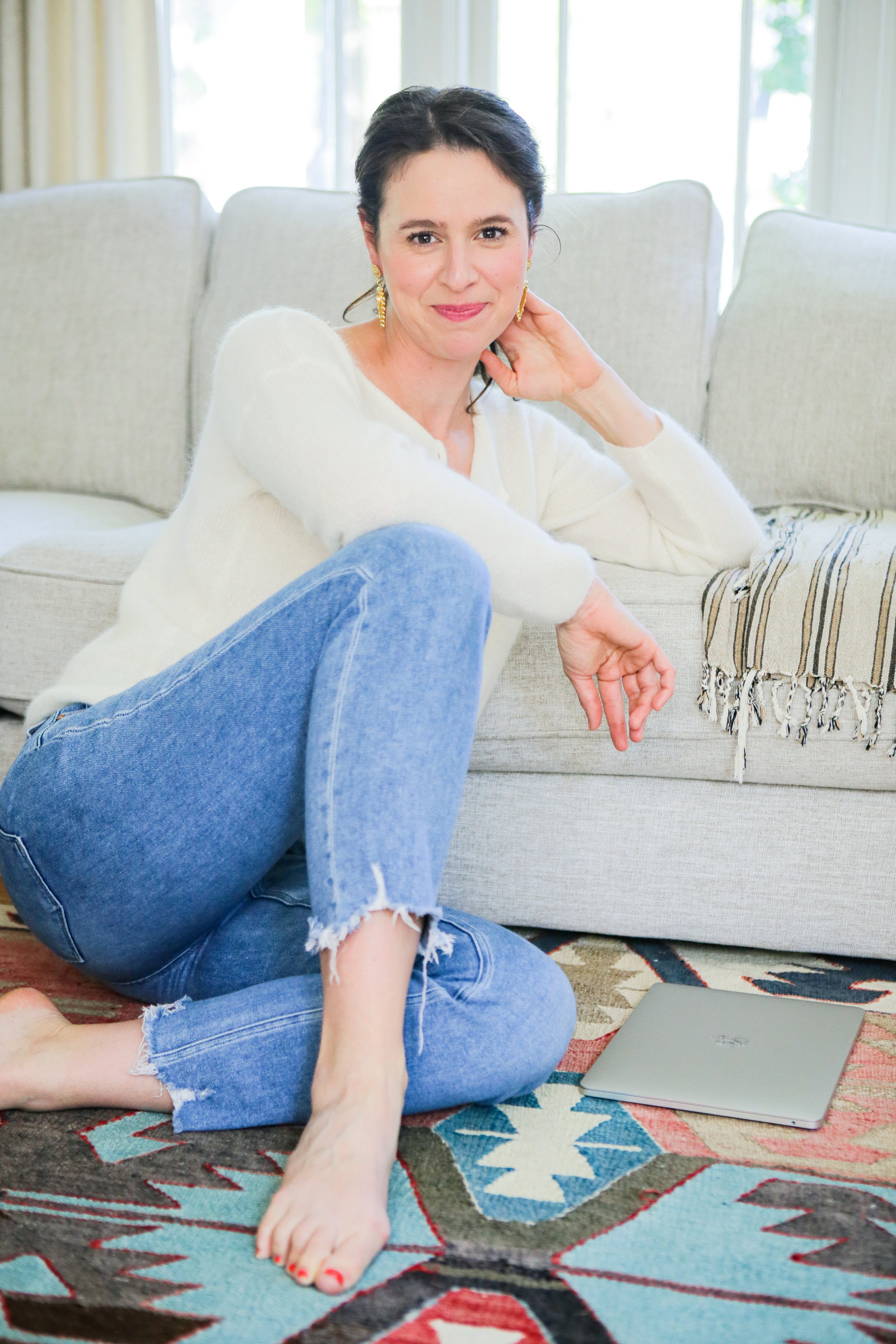Blog
Radical friendship advice from my father
My father is a 75-year-old man who loves bow ties, bel canto opera, and ancient military history.
He also, I have come to realize, has some pretty great insights on friendship.
As a young lawyer at a big firm, my dad always was always able to find someone down the hall to have lunch with. (For the modern lawyers reading this, dad would say: This was a different time. Lawyers at big firms actually took lunch breaks back then.)
But a decade into his career, my dad went out on his own. He got his own office, hung his shingle, and…found that he wasn’t seeing friends as nearly much. He was kind of lonely.
So he started inviting people out to lunch.
He made a list of everyone he wanted to see more of, and went down the list — calling people up and scheduling several lunches a week, as a way of breaking up his workday.
And when he finished the list? He started again at the top.
As a result, my dad had several social lunches per week. For decades.
He’s a pretty upbeat guy, which I attribute to many things — but I genuinely think that one of them is his regular social interaction.
…
He and I were talking about his lunches recently, and there were two things that I thought I could learn from them. Maybe they will be helpful to you, too:
1. My dad is extremely intentional about his friendships.
In fairness, I don’t think my dad would use the word “intentional” — that’s the type of word that his Life Coach Daughter likes.
But what other word can you use, for a man who has a literal list of friendships he wants to maintain and goes down the list on a regular basis, making sure he calls up each person?
And then starts again at the top?
2. My dad is comfortable doing 100% of the initiating.
This is, in my opinion, the most radical point of all. For virtually all of his lunches, my dad initiates the social plans.
I asked him, once: Dad, do you ever worry that maybe these people aren’t initiating back, because they don’t like you as much as you like them?
To that, he gave a good-natured shrug.
“I guess I could worry about that,” he told me, “but then I might stop asking people out to lunch. And what good would that do me? Or them?”
He told me that at least some friends will casually mention that they don’t socialize that much, with anyone. This makes sense to me; the average American spends less than a half hour a day on any non-work socializing and communicating, which includes time with one’s spouse.
And the others? Dad says: If they seem to be having a nice time with me, and I’m having a nice time with them, I don’t worry about whether they’re initiating or not.
Truthfully, this is not how I’ve typically approached friendships. Quite the opposite, in fact.
In the past, I’d be okay initiating a few extra times, but if I felt like as doing most of the initiating…I’d stop reaching out to that person. I’d worry that secretly, they didn’t like me as much as I liked them, and that idea made me feel uncomfortable.
I’ve been thinking that perhaps I shouldn’t worry about initiating so much since reading Shasta Nelson’s thoughts about friendship, but having my dad as a real, living-breathing-role model pushed me even further in that direction.
…
And one more thing:
For those of you with jaws agape, thinking: I definitely don’t have time for several social lunches a week — I hear you. As an introverted, working mom with two young kids…I hear you.
Even my dad’s lunch frequency varied. He spent the last decade of his career as a judge — with less lunchtime flexibility than as a self-employed person — his frequency of social lunches decreased dramatically.
So if you’re in a busy season of life, don’t get too fixated on “several lunches per week.” I think the two lessons still hold, for however often you are able to socialize.
…
I offer my dad’s story to you, today, if it’s a helpful nudge:
Could it be that the missing ingredient to a satisfying, meaningful, social life is being willing to intentionally decide who you want to see, and then be willing to do 100% of the work, to see them? You might not have to do all the work – you probably won’t! — but just a willingness?
On one level, that idea feels radical. (At least to me!)
But what if it isn’t? What if it’s just a willingness to say:
Most people are lonely.
Many people are bad at initiating.
Can I help them, and me, feel more socially connected?
Because, as a reminder: regular friendship interaction can be an astonishingly effective tool for happiness, stress relief, and even momentum in other areas of your life.
Should we all channel Carlton Seaver this week?
(If so, I suggest this bow tie.)
As always, I’m rooting for you.
Katie
Sign up for my newsletter to get helpful + encouraging essays like this every Sunday morning. It’s free!
My advice for when other people don't like you (part 2)
Last week, I wrote about what to do when people don’t like you, or judge you.
I wanted to share one more insight on this topic, which always seems to land with my clients:
5% of people won’t like you — no matter what you do.
So if someone doesn’t like you, all it means is that you’ve found someone in that 5%.
When our brain freaks out because someone doesn’t like us, it is usually because we have the implicit belief: 100% of people should like me.
And yet, this is a thinking error.
It is impossible that 100% of people will like you. In fact, some percent of people (which I call 5%, but you can pick a different percentage if you like) will dislike you no matter what you do.
They won’t like your hair because they don’t like brunettes.
They won’t like your sense of humor because it reminds them of their annoying brother.
They won’t like you, because their ex-best-friend likes you and they hate their ex-best-friend.
If you, in an attempt to make them like you, changed your hair color or sense of humor… some other group of people wouldn’t like that.
Of course, it’s not rocket science that you can’t please all the people all the time. And yet, when we are upset that someone doesn’t like us, that’s typically what we are upset about.
So it can be useful to explicitly cultivate the thought:
5% of people won’t like me — no matter what I do. Now I have found someone in that 5%.
…
Several weeks ago, one of my clients was sharing, with clear pain, how her work colleague just didn’t seem to like her very much. It bothered her; she was trying every tool in her toolkit to turn the relationship around. And then I shared this concept with her.
Oh, I *was* assuming that if I did everything right, 100% of people would like me, she said.
But maybe this is just someone in that 5%.
Maybe I don’t have to change how she thinks of me…*at all.*
Relief.
Calm.
Even some giggles.
And you better believe she showed up better in that relationship — more confident, more interesting, and yes — more like-able — when she wasn’t trying to get her colleague to like her so much.
…
As always, I’m rooting for you in the week ahead. You’ve got this.
Katie
p.s. If you’d like more comfortable with people not liking you all the time, while also having more authentic, deeper romantic relationships and friendships (and not feeling like your chest is tight from low-level anxiety/exhaustion all the time), you should definitely hire me as your life coach.
To learn more about my work, click here.
Sign up for my newsletter to get helpful + encouraging essays like this every Sunday morning. It’s free!
Two reminders about decision-making + what others will think
Two quick reminders about other people + decision-making:
1. Other people may not understand a decision you make, but that doesn’t mean it’s the wrong decision.
It’s simply the nature of life that sometimes you will make a decision that doesn’t make sense to them — or one that seems wrong or misguided.
No one — again, no one — will ever 100% “get you” like you get you. Even your soulmate. Even your best friend. Even your therapist.
(In other words: “This is your game.”)
2. Can you let them be wrong about you?
When other people doubt us, we often assume it means that we’re wrong.
But the Jedi-level Skill is the ability to do the opposite.
A Jedi has the capacity to say to herself: They’re simply mistaken.
And: I’m willing to let them be wrong about me.
…
I got this insight from Brooke Castillo, and it’s quite radical. If you can get comfortable with the idea that people will sometimes be wrong about you — and this can be okay, and you do not have to change their minds — you might just be ready to conquer the world.
(This is not, of course, to suggest that blind, unjustified confidence is the goal. It’s simply to say: the other person isn’t always right, either — and you get to decide what’s true.)
As always, I’m rooting for you. You’ve got this.
Katie
Sign up for my newsletter to get helpful + encouraging essays like this every Sunday morning. It’s free!
How to feel more confident at your college reunion, or any social gathering
As I write this to you, I’m preparing to go to my college reunion. I’m really excited about it, but also a little nervous.
It’s the kind of nervousness I often feel when I’m about to go to an event where I’ll be meeting and chatting with a lot of different people, and I begin to think to myself:
I hope everyone likes me.
Will I sound impressive enough?
I wonder if I seem kind of weird or awkward.
Have you had those thoughts before? Maybe before going to a networking event or holiday parties where you don’t know anyone, or even when you go to your parents’ for the holidays or see friends you haven’t seen for a while.
You feel vulnerable, and like you want the people you meet to like, accept, and approve of you.
A few years ago, I read something that gave me a lot of strength and inspiration for these moments, and I wanted to share it with you. It’s from Brené Brown’s lovely book, The Gifts of Imperfection:
I try to make authenticity my number one goal when I go into a situation where I’m feeling vulnerable.
If authenticity is my goal and I keep it real, I never regret it.
I might get my feelings hurt, but I rarely feel shame. When acceptance or approval becomes my goal, and it doesn’t work out, that can trigger shame for me: ‘I’m not good enough.’
If the goal is authenticity and they don’t like me, I’m okay. If the goal is being liked and they don’t like me, I’m in trouble. I get going by making authenticity the priority.
This is such a deep sentiment, and it was truly a game-changer for me.
If I go to a party where I don’t know anyone, and the goal is authenticity, it’s okay if everyone doesn’t think I am hilarious and charming, or if I have no one to talk to for a bit and spend some time looking at the bowl of chips.
If I go into a performance review and the goal is authenticity, it’s okay if my boss doesn’t shower me with compliments. It might sting, but I don’t have to be adored by everyone.
And, I remind myself as I prepare for the weekend ahead if I go to my college reunion and the goal is authenticity, it’s okay if I have some awkward conversations or don’t wow my classmates by explaining how I cured cancer while on a research trip to the Arctic Circle.
As long as I come out feeling like I’ve been myself, it can be a success.
It’s also worth mentioning that this whole “authenticity” thing has had big implications for me in terms of my eating. When I go into a social event and feel like I want people to like or approve of me, I feel like I have to hold everything together to project a certain image.
And honestly, that pressure is tiring and straining. Without realizing it, I will often find myself gorging on food before, during, or after the event to keep down all of the feelings of insecurity and nervousness that would otherwise be coming up.
But when I let myself make authenticity the goal, then the stakes aren’t so high and the outcome is within my control. I don’t need other people to like or approve of me; I just need to be myself.
And I am able to enjoy the food that goes along with these events, and not end the night feeling like I ate 100 tiny spring rolls or mini tarts.
Over to you: Do you have any upcoming social interactions that make you feel vulnerable? How would your attitude towards them change if you didn’t need acceptance, approval, or to be “liked,” but instead you let yourself make authenticity the goal? I’d love to hear from you!
You’ve got this!
Katie
If this essay resonated with you, you'll love my newsletter. Sign up for free + get new ideas every Sunday!




